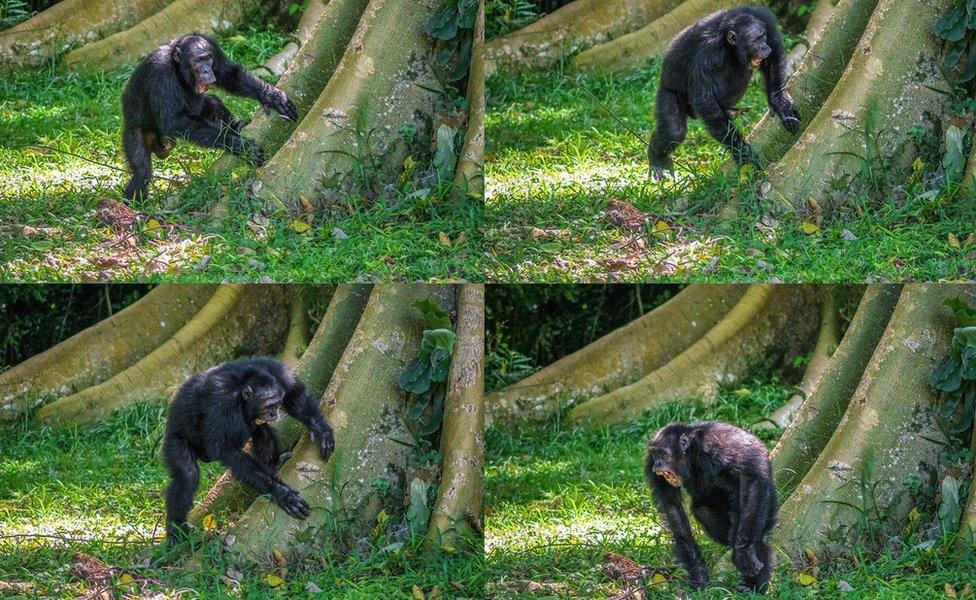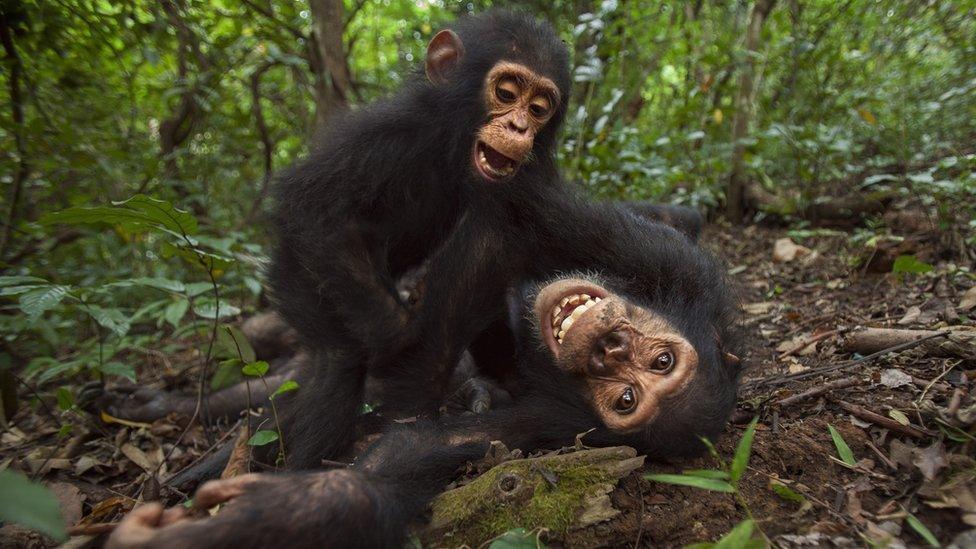Chimpanzees: Apes drum out messages to each other with unique beats
- Published
- comments

The chimps combine long distance calls with drumming
Chimpanzees are not only one of our closest relatives, they're also one of the most intelligent - and just like us, it seems they enjoy staying in touch with friends... but in a pretty unique way.
Scientists have found that the animals drum out messages to one another on tree roots.
In fact they each have their own "signature drumming style" according to experts.
The apes use this as a sort of 'social media' - with the rhythms allowing them to send information over long distances, revealing who is where and what they are doing!
What did scientists find?

Chimpanzees are one of our closest relatives
The research team was led by scientists from Scotland's University of St Andrews and followed a group of chimpanzees in Uganda's Budongo Forest in East Africa.
Scientists recorded the drum sessions of seven male chimps before studying the intervals between beats.
The chimps mostly use their feet, but also their hands to make the sound, which carries more than a kilometre through the dense rainforest.
Expert found that the chimpanzees each had their own styles of drumming - with some preferring straightforward rock beats while others grooved to more jazzlike rhythms!
Chimpanzees spend most of their days up in the treetops. When they do come down, they usually travel on all fours, although they can also walk on their legs like humans for up to a mile!
Vesta Eleuteri, who led the study, said that after just a few weeks in the rainforest she was able to recognise exactly which chimpanzee was drumming.
Ms Eleuteri explained: "The drumming serves as a kind of social media, allowing travelling chimpanzees to communicate with each other.
"Their drumming rhythms are so distinctive that it's easy to pick up on them," she added.
The team also observed that the apes could hide their signature sound if they do not want to reveal their location.
